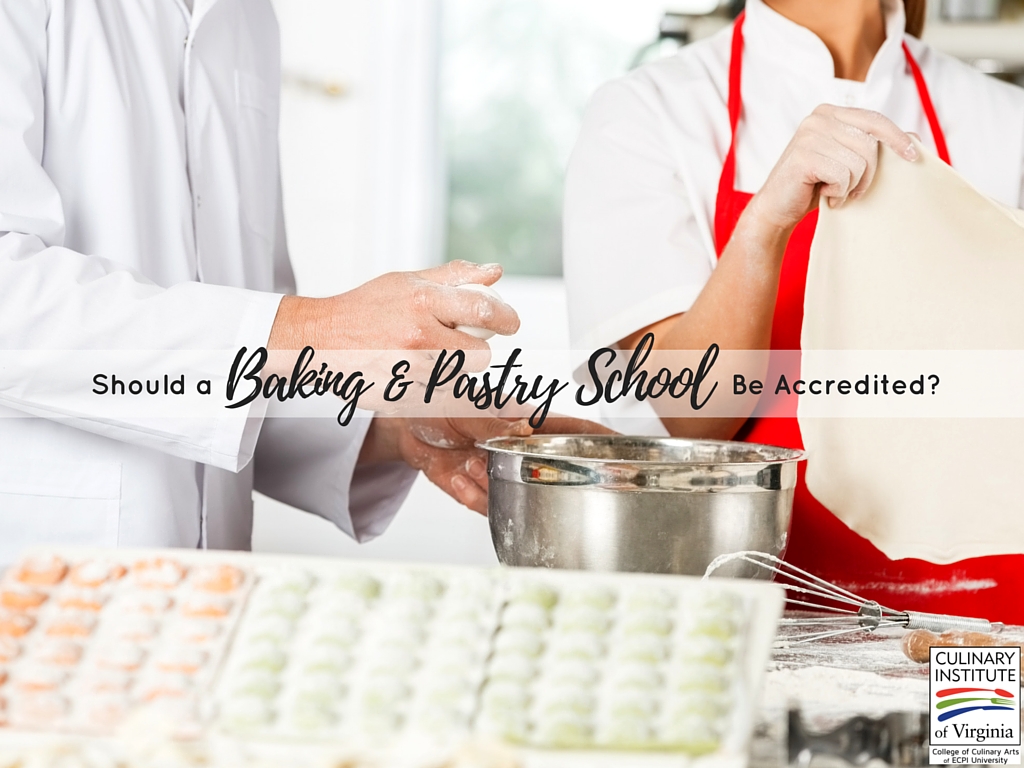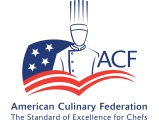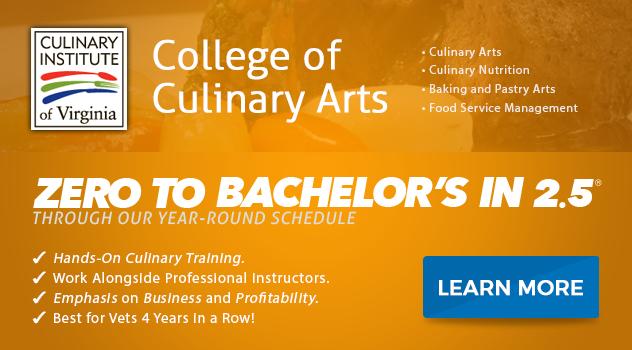
Should a baking and pastry school obtain accreditation? The answer is a resounding, “Yes!” While some culinary schools claim greatness, others set the bar by following key practices required for accreditation. The American Culinary Federation is one such accreditation agency that creates a standard of excellence for their chefs that only the most elite schools subscribe to.
There are six regional accreditation programs within the US:
- Accrediting Commission of Career Schools and Colleges (ACCSC)
- Accrediting Commission of Career Schools and Colleges of Technology (ACCSCT)
- European League of Institutes of the Arts (ELIA)
- International Council on Hotel, Restaurant, and Institutional Education (CHRIE)
- National Restaurant Association Education Foundation (NRAEF)
- Retailers Baking Association (RBA)
- American Culinary Federation Foundation Accrediting Commission (ACFFAC)
While sifting through baking and pastry programs, make sure the schools subscribe to one of the above. Their rigorous accreditation allows universities to:
- Create community and professional trust
- Establish standards of practice
- Maintain accountability and credibility
- Incorporate a high level of professionalism
- Incorporate up-to-date and current practices
- Enhance marketing
- Recruit students
 When looking for a culinary school, consider only those accredited by the American Culinary Federation. You can check the school’s website as well as your regional accreditation program and the Department of Education’s website. These will ensure a quality overall program that prepares you for the world beyond academia.
When looking for a culinary school, consider only those accredited by the American Culinary Federation. You can check the school’s website as well as your regional accreditation program and the Department of Education’s website. These will ensure a quality overall program that prepares you for the world beyond academia.
Trust your Instincts
Accreditation instantly establishes public trust with the community. It tells potential students, investors, and future employers that not only does this school set a higher standard, it works diligently to maintain it in a professional way. The school’s faculty work diligently to establish alongside their accrediting agency to maintain accountability and credibility. This not only promotes confidence in its students, it also opens doors for their future professional relationships.
Practice Makes Perfect
The American Culinary Federation’s accreditation program enlists top chefs from around the globe to help establish standards of practice. These standards are then incorporated into the practical and scholarly aspects of the schools they accredit. Representatives work with the school to help institute and maintain the rigorous standards. An ongoing relationship ensures that the school is both supported and overseen regularly.
Professional Behavior
Aligning your school with an accreditation program helps to establish goals and promote professional behavior. Accreditors can help to incorporate a high degree of professionalism through their close relationship with schools. Via school tours, research, paperwork, and communication, they are able to help schools instill professional demeanor within faculty and with outside team members and students.
Keep Your Ear to the Ground
The importance of keeping up to date on the latest trends is key in the culinary world. From rapidly globalized cuisine to an ongoing development of styles, foodies are always looking for the next big thing. Whether it’s chocolate lava cake, truffles, pork belly, or Hungarian paprika, ingredients fall in and out of favor as chefs study each other’s menus. The French classic patisserie dessert dacquoise and the boozy versions of fig cookies were ever-popular in recent years, but new trends will showcase creative desserts in years to come. Not only do ingredients and recipes evolve, so do cooking methods and instruments. Consider the early North African tagine earthenware compared with today’s sous vide and pressure cookers. With regular publications and two feet firmly in the professional world, accreditation programs consistently incorporate up to date and current practices.
To the Market
Accreditation programs allow schools to enhance marketing and recruit a top-tier group of students. The school will be included on the accreditation program’s website and relevant correspondence. This results in more eyes seen on the school, which in turn promotes more visibility and competition for admissions. This creates a more apt student body and a reputation amongst professionals for a highly qualified graduate class.
Accreditation of ECPI University’s College of Culinary Arts
Attending a bakery and pastry school that offers an accredited program ensures that your school meets or exceeds higher standards of education. Accrediting programs are independent, neutral third parties that create benchmarks such as the student-teacher ratio, the quality of instruction, types of courses available, and significant student services. Make your time count with attending an accredited school. Not only will you receive a higher level of education, you’ll also be in the know of up to date culinary practices and more attractive to potential employers. ECPI's Baking and Pastry Arts degree program is one such program that adheres to the rigorous standards set forth by a leading accreditation agency. Call today to learn more!
Great food and big scholarship money as I join Atlantic Shores community at ECPI Culinary school https://t.co/mDyz1fsAYt
— Les Smith (@LesSmithwtkr) April 1, 2016
DISCLAIMER – ECPI University makes no claim, warranty, or guarantee as to actual employability or earning potential to current, past or future students or graduates of any educational program we offer. The ECPI University website is published for informational purposes only. Every effort is made to ensure the accuracy of information contained on the ECPI.edu domain; however, no warranty of accuracy is made. No contractual rights, either expressed or implied, are created by its content.
Gainful Employment Information – Baking & Pastry Arts - Diploma
For more information about ECPI University or any of our programs click here: http://www.ecpi.edu/ or http://ow.ly/Ca1ya.


